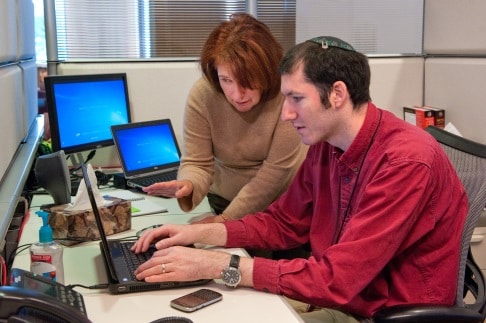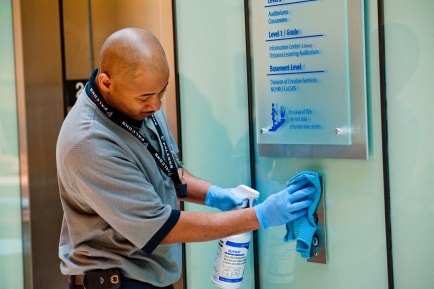Workplace Administrators
Flu Prevention at Work
Workplaces offer many opportunities for people to interact. More interaction between people in close contact increases the risk for respiratory illnesses like the flu to spread. Preventing illness among employees can also support healthy and steady workplace operations.
Getting a flu vaccine every year is the best way to avoid getting seasonal flu. Besides the flu vaccine, there are other important actions you and your community can take to protect yourself and others from getting and spreading the flu. These are called nonpharmaceutical interventions or NPIs. Examples of NPIs include staying home when you are sick and covering your coughs and sneezes with a tissue. NPIs are especially important during pandemic flu outbreaks, when people have little or no immunity to a new flu virus and a vaccine is not yet available.
- What you can do personally (Personal NPIs): Stay home when you are sick. Cover your coughs and sneezes with a tissue. Wash your hands often with soap and water.
- What communities can do (Community NPIs): Implement social distancing interventions in schools, workplaces, and at events.
- What everyone can do to keep the environment germ-free (Environmental NPIs): Clean frequently touched surfaces and objects like door knobs.
- CDC provides educational resources and training on how to incorporate personal, community, and environmental NPIs into your pandemic flu plans.
The actions you take and the plans you make today make a difference. Here are some important steps for protecting yourself and your staff from getting and spreading the flu at work:



